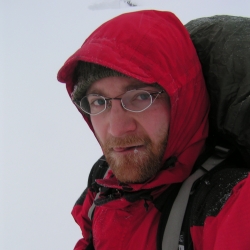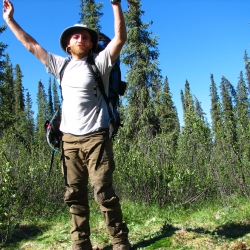Graduate Program: PhD
Supervisor: Peter Arcese
Country of Origin: Austria
Tags: Carbon MarketConservationRestorationWildlife Management
Why did you choose UBC?
Having done field work for my Austrian masters in southeastern BC, I planned to come back to British Columbia after finishing my degree. Given my interest in conservation biology, UBC was my top choice as there are numerous faculty members working in this field. I was fortunate enough to get hired as a research assistant in Peter Arcese’s lab and in 2010 Peter took me on as his PhD student.
What has been the highlight of your experience?
Having been a student in 3 countries and 4 universities, I was very impressed with the variety of opportunities students have here at UBC in terms of courses and workshops offered, and also by the breadth of expertise as well as approachability of faculty members. Our Faculty has a remarkable range of expertise in forestry related fields like forest operations, management, policy and economics as well as disciplines not fitting in the traditional definition of forestry such as climate change and conservation research.
Future Plans
I hope that my doctoral research will contribute to improve the efficiency of conservation actions for the protection and restoration of critical wildlife habitat in areas where land conversion has decreased native species richness and eliminated old-growth forest and woodland habitats. My results should help advance the application of conservation planning tools by determining how carbon offsets can be used to produce the most economically and biologically efficient solutions for land acquisition and protection. This should help enhance the persistence of valued native species, and provide immediate guidance to land use planners trying to maximize the value of their conservation investments.

